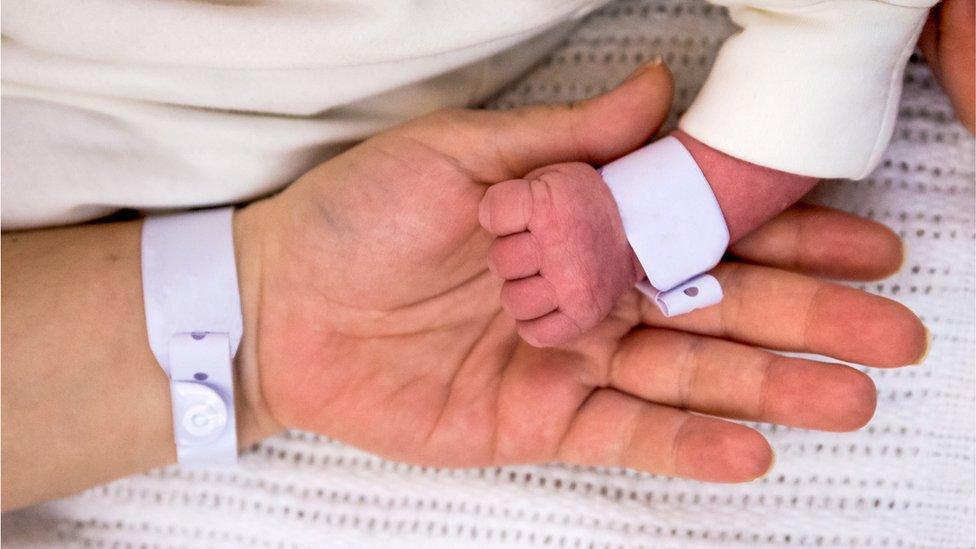Birth complications 'twice as common' in some hospitals
- Published

Women are twice as likely to suffer serious blood loss and severe tears during childbirth in some hospitals, according to an audit of maternity services in Great Britain.
Third and fourth-degree tears occurred in one in 30 vaginal births but in some units in 2015-16 it was one in 15.
The report showed that while most women had a safe birth, there were some variations in care.
It covers 149 out of 155 NHS trusts and boards in England, Scotland and Wales.
is based on the electronic records of nearly 700,000 births.
It found that haemorrhage during childbirth, a major cause of illness in women who have given birth, occurred in about one in 40 women, but in some maternity units the rate was as high as one in 20.
Call for investigation
The number of women affected by third and fourth-degree tears, also known as obstetric anal sphincter injuries - a serious complication of vaginal birth which increases the risk of incontinence - also varied widely from hospital to hospital.
At the Royal Sussex County Hospital, part of Brighton and Sussex University Hospitals NHS Trust, 6.5% of women were affected, compared with 0.6% at Dr Gray's Hospital, NHS Grampian.
The report said this could be due to differences in the risk profile of women being seen in units, awareness of the problem among doctors and how well they reported it.
Overall, the proportion of women who suffered serious tears in England, Scotland and Wales when having a vaginal birth was about 3.5%.
Prof Lesley Regan, president of the Royal College of Obstetricians and Gynaecologists, said some variation was expected - but unexplained variation needed investigation.
"We urge all maternity units to examine their own results and those of their neighbours both to identify role models and to drive quality improvement locally."
Early bonding
The report also found that in women expecting a single, full-term baby:
vaginal births occurred in 65.7% in England, 65.8% in Scotland and 70.6% in Wales
Caesarean sections occurred in 20.7% in England, 19.7% in Scotland, and 15.7% in Wales
assisted vaginal deliveries occurred in 13.6% of birth - similar across the three nations
The report noted that 14% of women in England were smoking at their first antenatal appointment, compared with 16% in Scotland and 18% in Wales.
Fewer than half of pregnant women had a body mass index (BMI) within the normal range - between 18.5 and 25 - while one in five was obese with a BMI of 30 or over.
And one in seven women giving birth for the first time was aged 35 and over.
The report also recommended that doctors should make every effort for all babies to have skin-to-skin contact with their mothers within an hour of birth so that breastfeeding and bonding could be started quickly.
Prof Anne Greenough, vice-president for research at the Royal College of Paediatrics and Child Health, said: "The health and behaviours of mothers during pregnancy can have a real impact on the health of their unborn child.
"It's critical that public health, maternity and paediatric services work together to ensure that all children get the best start in life."